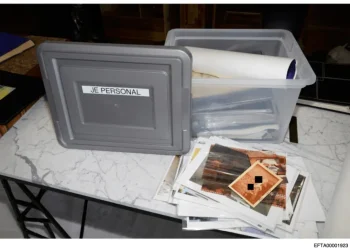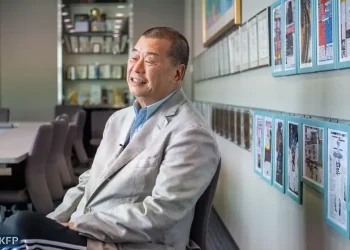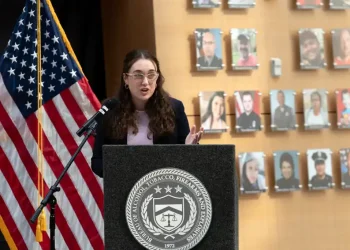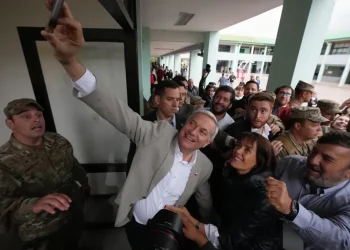Published: October 18, 2025, 21:45 EDT
The firing of a faculty adviser to Indiana University’s student newspaper and the abrupt cancellation of its print editions have stirred national attention, raising concerns about censorship, journalistic independence, and the limits of administrative authority in academic media settings.
University Decision Sparks Censorship Concerns
Indiana University officials terminated Indiana Daily Student adviser Jim Rodenbush after he refused an administrative directive to block news stories from appearing in the homecoming print edition. The decision coincided with the university’s announcement to end all print publications for the long-running student newspaper, shifting entirely to digital platforms.
The move, intended to coincide with homecoming festivities celebrating the Hoosiers football team’s highest-ever national ranking, instead prompted public outcry and questions about press freedom within university media programs.
Advocates for student journalists, including Indiana Daily Student alumni, press freedom organizations, and billionaire Mark Cuban — an Indiana University alumnus — have condemned the administration’s actions. Many argued that the university overstepped its authority and compromised the editorial independence of one of the nation’s most respected collegiate newsrooms.
A Longtime Publication Faces Structural Change
The Indiana Daily Student, recognized among the leading collegiate newspapers in the United States, receives approximately $250,000 annually in subsidies from the university’s Media School to offset declining advertising revenue.
Last year, the university announced plans to reduce the paper’s print schedule from weekly editions to seven special issues per semester, each tied to major campus events. However, according to Rodenbush, administrators later began pressuring the newsroom to remove standard news coverage from these special print editions — an order he refused to enforce.
“I had to make the decision that would allow me to live with myself,” Rodenbush said. “I don’t have any regrets whatsoever. In the current environment, somebody has to stand up.”
University Defends Decision as Financial, Not Political
A university spokesperson referred inquiries to a statement asserting that the Media School’s decision was based on resource reallocation, citing a desire to improve students’ digital journalism experience and address long-term financial challenges.
Chancellor David Reingold also released a statement emphasizing that Indiana University remains “firmly committed to the free expression and editorial independence of student media” and that the institution “has not and will not interfere with editorial judgment.”
Still, critics argue that the termination of Rodenbush and the cancellation of print editions contradict that assurance.
Adviser’s Firing Linked to Editorial Control Dispute
According to Rodenbush, IU Media School Dean David Tolchinsky told him earlier this month that university leadership expected print editions to exclude traditional news coverage. Tolchinsky reportedly argued that Rodenbush, as the paper’s adviser, functioned as the equivalent of a publisher and should decide what went to print.
Rodenbush said he pushed back, asserting that those decisions belong exclusively to student editors — not faculty or administrators. Two days before the homecoming issue was due for publication, Tolchinsky terminated Rodenbush’s employment and formally ended all print production for the Indiana Daily Student.
In the termination letter, Tolchinsky cited “a lack of leadership and ability to align with the University’s direction for the Student Media Plan.”
Student Journalists Denounce ‘Scare Tactic’
Student editors and press freedom advocates quickly condemned the firing. Andrew Miller, the Indiana Daily Student’s co-editor-in-chief, called the move a “deliberate scare tactic” aimed at discouraging student journalists and faculty advisers from challenging administrative directives.
“Jim did the right thing by refusing to censor our print edition,” Miller said. “IU has no legal right to dictate what we can and cannot print.”
Legal Experts Cite First Amendment Precedent
Mike Hiestand, senior legal counsel at the Student Press Law Center, said the case law surrounding college journalism is well-established. “For over 60 years, courts have made it clear that student editors at public universities have the final say over content,” he said. “Advisers like Rodenbush cannot legally interfere — and certainly not administrators.”
He added, “It’s open and shut, and it’s just bizarre that this is coming out of Indiana University — an institution that should absolutely know better.”
Editorial Independence Under Pressure
Rodenbush said he was not aware of any single article that may have triggered the university’s decision but suggested a “general progression” toward limiting coverage that could reflect poorly on administrators.
Following the print ban, Indiana Daily Student journalists continued to publish stories online, including investigations into campus sexual assault reports, an FBI raid on a former professor’s home, and a feature on a film critical of the arrests of pro-Palestinian demonstrators.
The paper also recently covered plagiarism allegations against IU President Pamela Whitten, a story that has drawn attention since September.
Student Media Advocates Rally Nationwide
Press freedom organizations, including the Student Press Law Center and the Foundation for Individual Rights and Expression (FIRE), have called on Indiana University to reinstate Rodenbush and reaffirm its commitment to student editorial autonomy.
“The situation at Indiana University is a stark reminder that the First Amendment doesn’t take a break during homecoming weekend,” said FIRE spokesperson Katlyn Patton. “Student journalists must be free to report without administrative interference.”
A Broader Reflection on Academic Free Press
The controversy has reignited national discussion about the fragile state of press freedom in American universities, where student newsrooms often depend on financial support from the institutions they cover. Advocates warn that financial control can easily become a tool of editorial influence.
Media analysts note that the case underscores the need for clear institutional boundaries separating university administration from editorial decision-making — a principle central to journalism education.
While Indiana University has pledged to uphold free expression, the dismissal of a veteran adviser and the end of print editions mark a turning point in how student journalism may be managed across public universities in the digital era.
▶ Stay informed with JournosNews.com — your trusted source for verified global reporting and in-depth analysis. Follow us on Google News and BlueSky for real-time updates.
This article was rewritten by JournosNews.com based on verified reporting from trusted sources. The content has been independently reviewed, fact-checked, and edited for accuracy, neutrality, tone, and global readability in accordance with Google News and AdSense standards.
All opinions, quotes, or statements from contributors, experts, or sourced organizations do not necessarily reflect the views of JournosNews.com. JournosNews.com maintains full editorial independence from any external funders, sponsors, or organizations.
Stay informed with JournosNews.com — your trusted source for verified global reporting and in-depth analysis. Follow us on Google News, BlueSky, and X for real-time updates.














